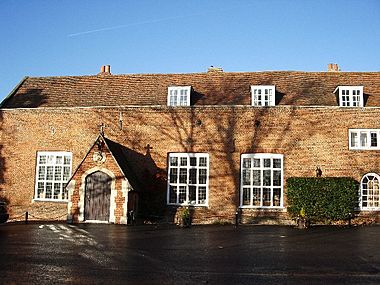Bernard Williams facts for kids
Quick facts for kids
Sir Bernard Williams
|
|
|---|---|
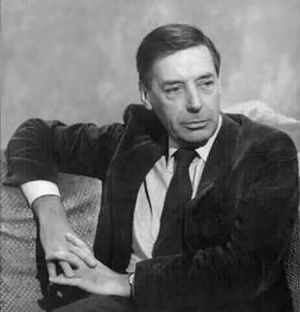 |
|
| Born |
Bernard Arthur Owen Williams
21 September 1929 Westcliff-on-Sea, Essex, England
|
| Died | 10 June 2003 (aged 73) Rome, Italy
|
| Education | Chigwell School |
| Alma mater | Balliol College, Oxford |
| Spouse(s) |
|
| Era | Contemporary philosophy |
| Region | Western philosophy |
| School | Analytic philosophy |
| Institutions | |
| Academic advisors | Gilbert Ryle |
| Notable students | Myles Burnyeat, Jonathan Sacks, Martha Nussbaum |
|
Main interests
|
Ethics |
|
Notable ideas
|
Internal reasons for action, moral luck, dirty hands |
Sir Bernard Arthur Owen Williams (born September 21, 1929 – died June 10, 2003) was an important English philosopher. He was known for his ideas about how we should live our lives. He wrote many books, including Ethics and the Limits of Philosophy.
Bernard Williams was a professor at famous universities like University of Cambridge and University of California, Berkeley. He wanted to connect philosophy more with psychology and history. He was especially interested in the ideas of the Ancient Greeks.
He believed that it's hard to create one simple rule for all moral choices. Another philosopher, Martha Nussbaum, said he wanted philosophy to understand the "difficulty and complexity of human life." Williams was also a strong supporter of women in universities. He was known for being very smart in conversations.
Contents
Life Story
Early Life and Learning
The young Bernard was in perpetual intellectual motion, like a dragonfly hovering above a sea of ideas. Everyone he encountered, every event that occurred were material for his insight and his wit.
Bernard Williams was born in Westcliff-on-Sea, England. His mother was Hilda Amy Williams, and his father was Owen Pasley Denny Williams. Bernard went to Chigwell School, a private school, where he first discovered philosophy.
Reading books by D.H. Lawrence made him think about ethics and who we are as people. In his first book, Morality: An Introduction to Ethics (1972), he liked Lawrence's advice: "Find your deepest impulse, and follow that."
Williams earned a scholarship to Oxford University. He studied "Greats," which included Classics, Ancient History, and philosophy. He was very good at writing Latin poems. In 1951, he graduated with top honors. He also won a special fellowship at All Souls College, Oxford.
After Oxford, Williams served two years in the Royal Air Force. He flew Spitfire planes in Canada. During this time, he became close to Shirley Brittain Catlin, who he had known at Oxford.
Williams returned to England in 1954 to work at New College, Oxford. He and Shirley Catlin continued their relationship. She was working for a newspaper and wanted to become a politician. Williams, who was also in the Labour Party, helped her with her election campaigns.
First Marriage and Life in London
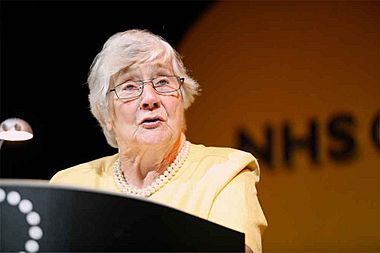
Bernard Williams and Shirley Catlin got married in London in July 1955. They spent their honeymoon in Greece.
They first lived in a small apartment in London. Later, they bought a large house with friends in Kensington. Williams said this was one of the happiest times of his life.
In 1958, Williams taught for a short time at the University of Ghana. When he came back to England in 1959, he became a philosophy lecturer at University College London. In 1961, he and Shirley had a daughter named Rebecca.
In 1964, Williams became a Professor of Philosophy at Bedford College, London. That same year, his wife Shirley was elected to the British Parliament. She became a junior minister and was seen by some as a future prime minister. She later helped start a new political party, the Social Democratic Party. Williams joined this new party but later returned to the Labour Party.
Cambridge and Second Marriage
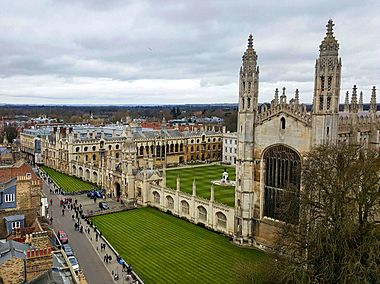
In 1967, at age 38, Williams became a philosophy professor at the University of Cambridge. He also became a fellow at King's College.
Williams played a key role in King's College deciding to admit women in 1972. This made it one of the first all-male colleges at Oxford or Cambridge to do so. He supported his wives' careers and helped with raising their children more than was common for men at that time.
Shirley Williams's political career meant they spent a lot of time apart. Their different beliefs (he was an atheist, she was Catholic) also put a strain on their marriage. In 1970, Williams started a relationship with Patricia Law Skinner. She was an editor who had asked him to write a book. They fell in love.
Williams and Skinner began living together in 1971. He and Shirley divorced in 1974. Bernard then married Patricia that same year. They had two sons, Jacob (born 1975) and Jonathan (born 1980).
Berkeley and Return to Oxford
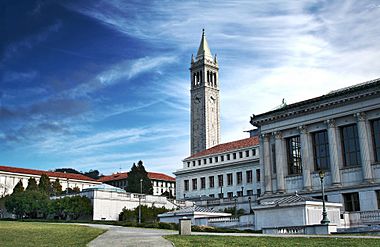
From 1979 to 1987, Williams was the leader (Provost) of King's College. In 1988, he moved to the United States to become a philosophy professor at the University of California, Berkeley. He told the media he was leaving due to the "brain drain" of British academics to America.
Williams returned to England in 1990. He became a professor at Oxford University and a fellow of Corpus Christi. He said his sons were struggling in California, and he wanted to be able to help them more. He regretted making his move from England so public. He had done it to highlight the low pay for academics in Britain. He retired in 1996 and became a fellow again at All Souls College.
Love for Opera
Williams loved opera from a young age, especially the music of Mozart and Wagner. His wife, Patricia Williams, wrote that he went to opera shows as a teenager. He once said that a performance of Wagner's Tristan und Isolde made him feel "virtually uncontrollable." He was on the board of the English National Opera for many years. He also wrote an article about opera for a famous music dictionary. A collection of his essays about opera was published after he died.
Awards and Passing
Williams received many honors during his life. He became a fellow of the British Academy in 1971. In 1983, he became an honorary member of the American Academy of Arts and Sciences. He was also knighted in 1999, which means he received the title "Sir." Many universities, including Yale and Harvard, gave him honorary doctorates.
Sir Bernard Williams passed away on June 10, 2003, in Rome, Italy. He was on holiday and died from heart failure. He had been diagnosed with a type of cancer in 1999. He was survived by his wife Patricia, their two sons, and his daughter Rebecca.
His Ideas and Legacy
Williams did not try to create one big, complete philosophical theory. He was actually careful about such attempts. He was known for his strong debating skills, but he was also careful about using them too much.
A philosopher named Alan Code wrote that Williams was never impressed by just being "clever" in philosophy. Instead, Williams always stressed important points:
- Moral thinking is a part of human life.
- When philosophers write about morals, they are writing about something truly important.
- It's not easy to say anything truly valuable about this topic.
- What moral philosophers write must connect to real human history, psychology, and society.
- Being clever is not the most important measure of value.
Being in Williams's presence is at times painful because of that intensity of aliveness, which challenges the friend to something or other, and yet it was, and is, not terribly clear to what. To authenticity, I now think: to being and expressing oneself more courageously and clearly than one had done heretofore.
In 1996, another philosopher, Martin Hollis, said that Williams had "a good claim to be the leading British philosopher of his day." However, he noted that Williams was good at finding important questions but did not always have all the answers.
Alan Thomas said that Williams's main contribution to ethics was his doubt about trying to build a perfect system for moral philosophy. In his books, Williams argued that moral theories can never fully show how complex life is. This is especially true because modern societies have so many different ideas and ways of life.
A key idea in Williams's work is about being true to yourself. It's about being authentic and acting with honesty, rather than just following rules from an outside system. Williams himself said in 2002, "If there's one theme in all my work it's about authenticity and self-expression." He wanted to move moral philosophy away from the question "What is my duty?" (which was important to philosophers like Immanuel Kant) and back to the question that mattered to the ancient Greeks: "How should we live?"
Images for kids
-
Immanuel Kant (1724–1804)
See also
 In Spanish: Bernard Williams para niños
In Spanish: Bernard Williams para niños
 | Toni Morrison |
 | Barack Obama |
 | Martin Luther King Jr. |
 | Ralph Bunche |


